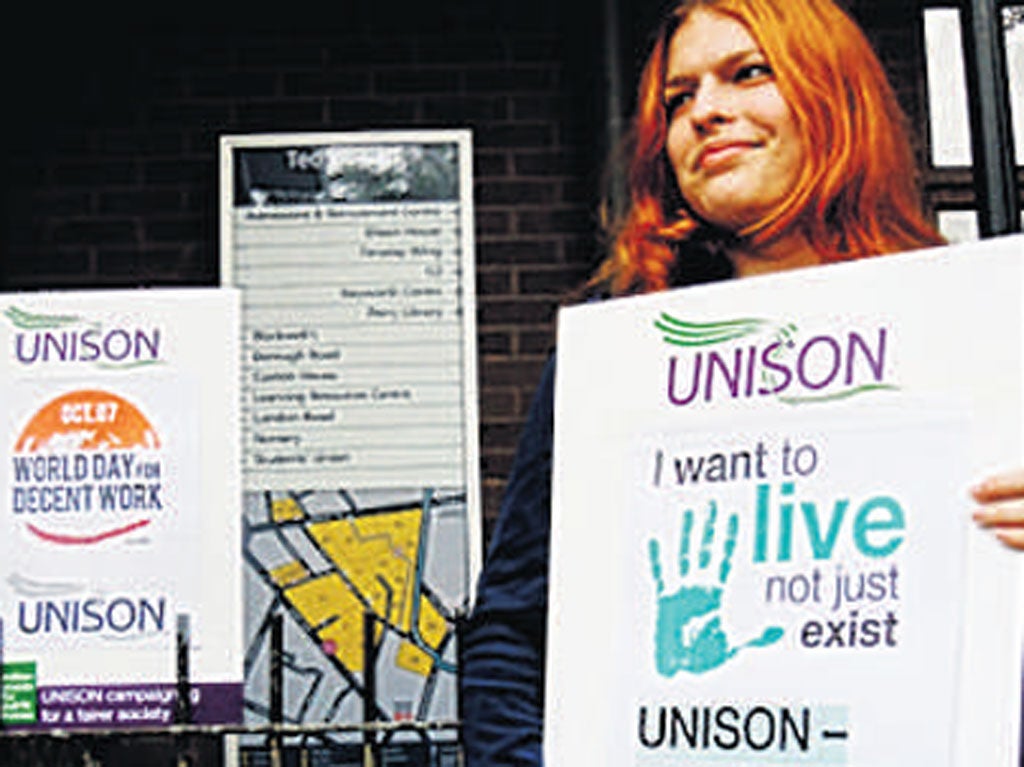Amol Rajan: Community organisers are building the Big Society
FreeView from the editors at i

Your support helps us to tell the story
From reproductive rights to climate change to Big Tech, The Independent is on the ground when the story is developing. Whether it's investigating the financials of Elon Musk's pro-Trump PAC or producing our latest documentary, 'The A Word', which shines a light on the American women fighting for reproductive rights, we know how important it is to parse out the facts from the messaging.
At such a critical moment in US history, we need reporters on the ground. Your donation allows us to keep sending journalists to speak to both sides of the story.
The Independent is trusted by Americans across the entire political spectrum. And unlike many other quality news outlets, we choose not to lock Americans out of our reporting and analysis with paywalls. We believe quality journalism should be available to everyone, paid for by those who can afford it.
Your support makes all the difference.A spectre is haunting England – the spectre of community organising. Barack Obama spent his politically formative years working in Chicago as a community organiser. That phrase is clearly understood in America, but less so over here. It refers to a tradition pioneered by Chicagoan Saul Alinsky – and it has migrated across the Atlantic.
Community organisers bring together local institutions – schools, churches, mosques, youth groups, trade unions – in large assemblies. Testimonies conveying the most pressing concerns of each group are delivered. Votes are then taken on the issues that unite different groups, and a mandate is given to community organisers to campaign for businesses and government, both at local and at national level, to change their ways.
The various institutions pay a small stipend, and charitable trusts are leant on for financial support. Community organisers tend not to take government money.
Almost undetected by most of our polity, this form of democratic activism is making a brilliant and dramatic impact in the capital especially. It is doing this mainly through a body called Citizens UK, of which London Citizens is the biggest sub-group. (Full disclosure: I had a very small walk-on part with London Citizens a few years back, and its lead organiser is a close friend.)
The best example of what London Citizens has achieved is the Living Wage campaign, which was 10 years old in May. With the mandate of hundreds of small civic institutions, they campaigned for a better minimum wage for cleaners and agency staff. Several banks, schools, hospitals, universities and Westfield shopping centre have now improved workers' pay and conditions. It didn't require legislation; mere social stigma raised the wages of poor workers, and so reduced the burden on the welfare state, by taking many out of benefits, without increasing unemployment. This is redistribution at its best.
Ken Livingstone, Boris Johnson, Nick Clegg and David Cameron all say London Citizens exemplifies the Big Society. These activists have given training to the Tories on social action, and to Labour's Movement for Change. Red Tories and Blue Labourites similarly revere their ability to give social and economic capital to the poor, and power to the powerless.
There are caveats, to which I shall return in coming weeks. But at a time when the poor are more removed from democracy and national influence than ever, the advent and early success of community organising in Britain is both exhilarating and an inspiration.
Join our commenting forum
Join thought-provoking conversations, follow other Independent readers and see their replies
Comments